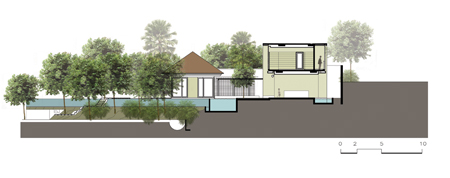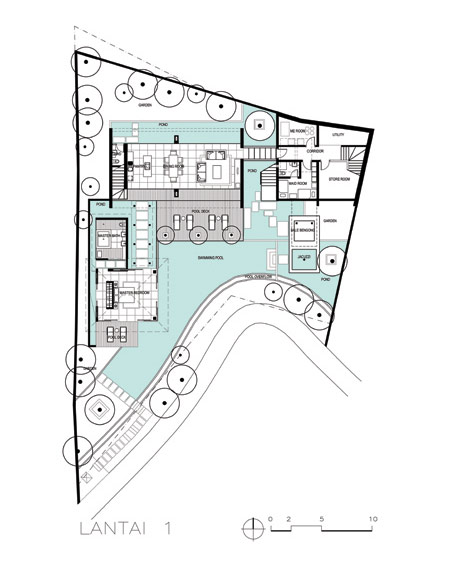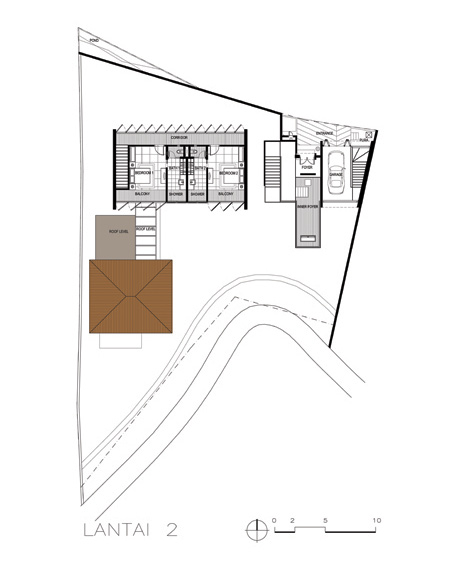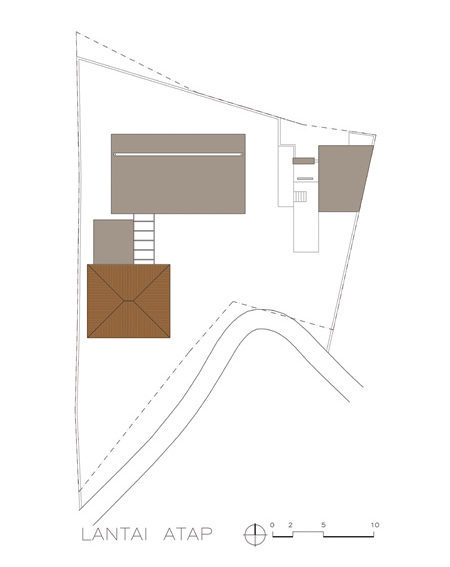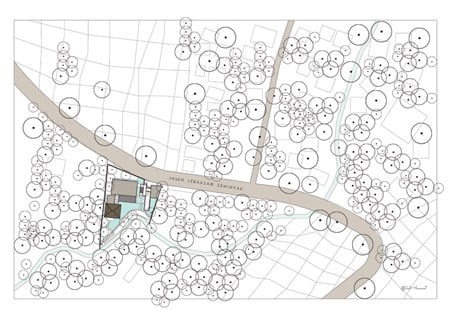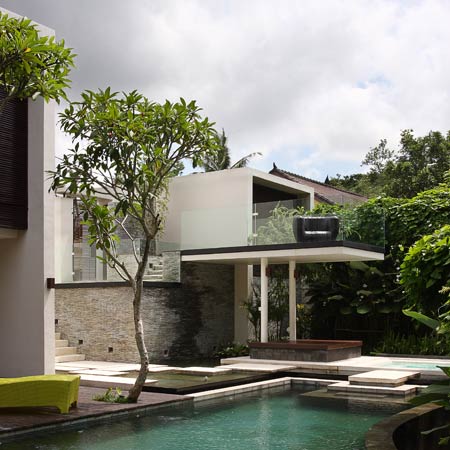
Villa Paya-Paya by Aboday architects
Architects Aboday have completed a holiday home called Villa Paya-Paya in Bali, Indonesia.
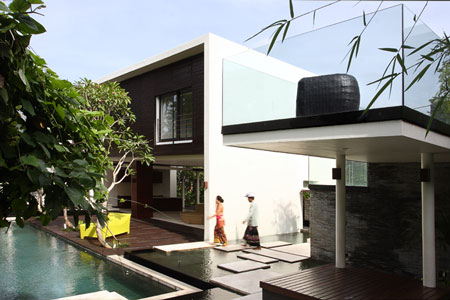
The two-storey building is arranged around courtyards and surrounded by water of varying depth, which creates a shallow pond at the entrance, jacuzzi and large swimming pool.
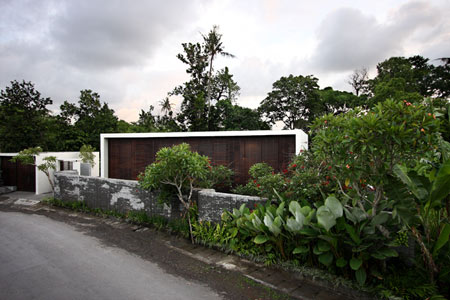
The building itself consists of a concrete, box-shaped facade with a separate master bedroom, made using traditional wooden construction and a coconut leaf roof.
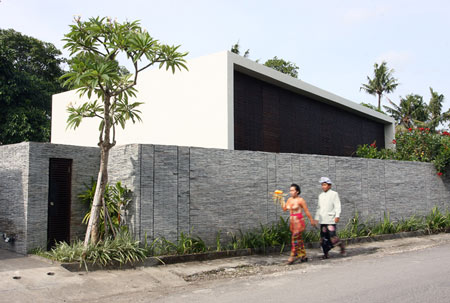
The site was formerly a papaya plantation and pig farm, situated in a residential area of the island.
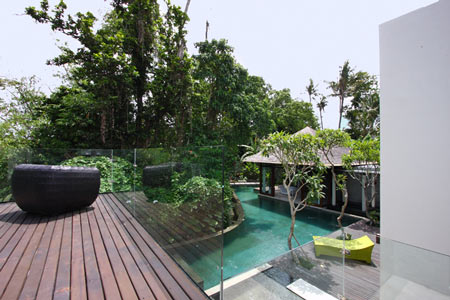
Photographs by Happy Lim Photography.
Here's some more information from the architects:
--
Villa Paya-Paya
This villa located in Seminyak, a bustling residential area in the heart of Bali, Indonesia. Standing on an approximatelly 750 sqm land, the site bordered on the North by 6 meter public road, and by a pangkung (dried, old river in Balinese) on the South. Client request to have a holiday home for the small family of 4, with a simple program: large living dining, large servant quarter, 1 master bedroom with huge bathroom and 2 smaller bedroom. They will only use this villa during the holiday season, while for the rest of the year, it will be rented out by the property agent to a group of wealthy tourists that are flocking to the recently-hip area.
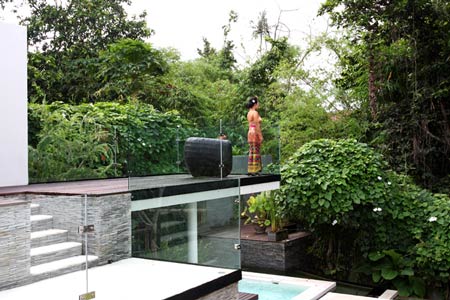
Bali was always sought after by holiday makers because of its magical ambience (most people here are Hindu, hence the number of temples that can be found in one location), or view (of the sea, sprawling rice fields with river or the misty mountain). But this site doesn't have all those; it was a papaya plantation and pig farm before being bought by the present owner. The only potential that architect could explore is the surrounding mature plantation with huge banyan trees as the point of interest, right across the pangkung.
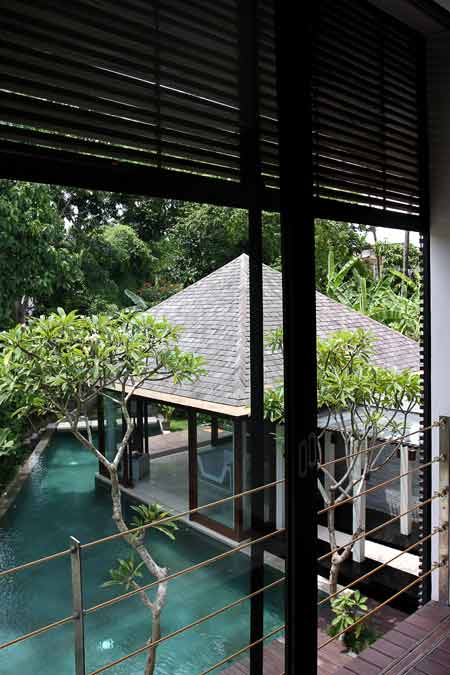
The sloping site (the lowest point is 4 meter from the main road), gives an advantage to the design. Aboday, as an architect, doesn't want to have an imposing building. The villa needs to respect human scale and the main road as a main thoroughfare to the temple. This road is always crowded during the Hindu celebration, and anything taller than coconut trees will be an intrusion to their ritual.
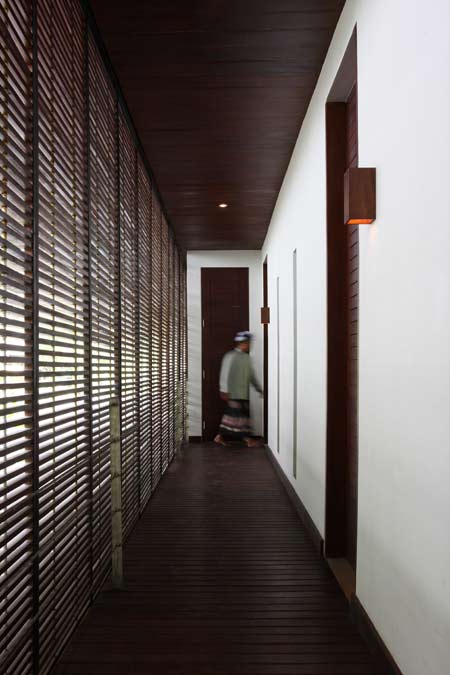
The 2 level villa appears as a friendly single-storey building from the road, sunk in the rest of the room program on its ground level. Rather than evoking the surrounding typical Balinese building of sloping, coconut leaf roof, Aboday choose a simple concrete white box as the facade of the building.
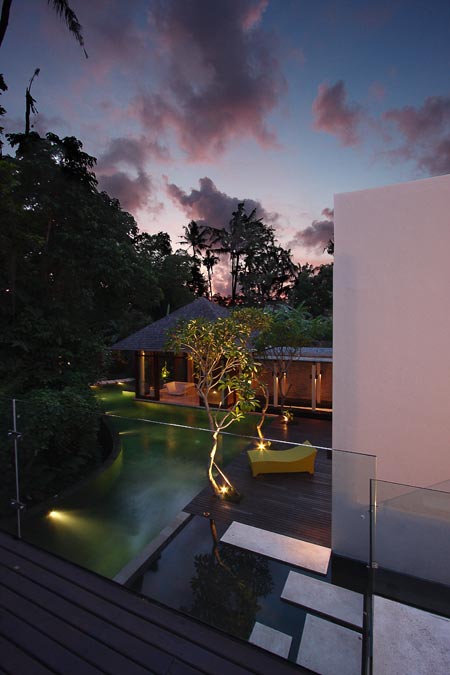
The traditional sloping roof will still be used in the master bedroom pavilion with its wood structure, hidden behind the white box facade, as an element of surprise among the domination of white forms.
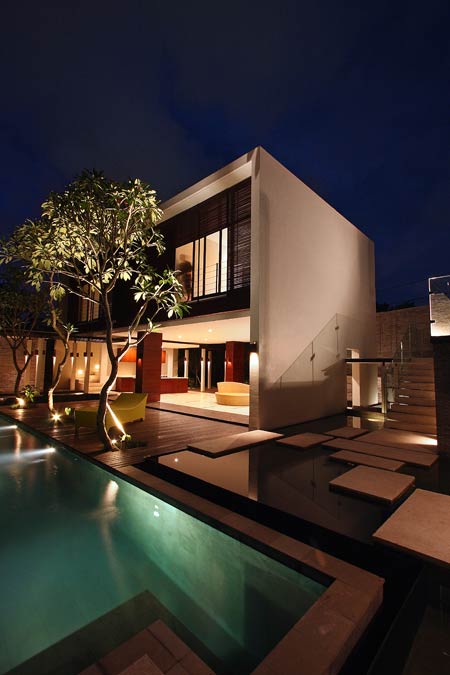
The massing of this villa follow the traditional balinese pattern of 'natah' or courtyard. In this villa, the courtyard is an extension of the open plan living and dining room, transforms into water body that dominate almost the entire garden, gradually changing from shallow reflecting pond beneath the cascading entrance step, the jacuzzi under the cantilever balcony, and main swimming pool surrounding the master bedroom pavilion. The effect is anything but floating building. The entire villa as if sitting on the water (or paya-paya in Bali), hence the name Villa Paya-paya.
